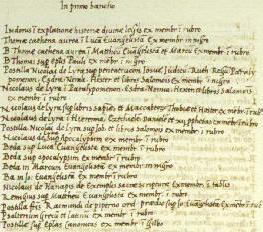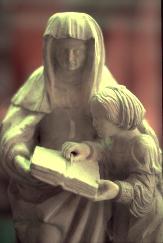#56: "The Wondersmith" by Fitz-James O'Brien, Part 2
The creepy Christmas story becomes a creepy New Year's Eve, as the Wondersmith's evil plans move into their final phase. Beware the Wondersmith!
Btw, I knew I'd heard that phrase before. I have a fairy tale book about the Gobhan Saor called The Wonder Smith and His Son. (It came out in 1927.) Wayland, Mimir and Regin are also called "wonder smith", so the term may come from Norse kennings. Wherever it comes from, it's a good title, ne?
MANUAL DOWNLOAD HERE!
Section 4: "The Manikin and the Minos"
Section 5: "Tied Up"
Section 6: "The Poisoning of the Swords"
Section 7: "Let Loose"
46 min.








1 Comments:
Thanks for the Fitz-James O'Brien readings. I've only listened to a couple of the short ones but plan to download "The Wondersmith."
Earlier you asked if O'Brien was Catholic or Church of Ireland. I've been doing some research on FJOB and have come up with some interesting things. When he died, he was an Episcopalian. At first I was thrown when I read (in an 1898 NYTimes piece on him) that he called for a priest when he was on his deathbed. But when I found his obituary, it stated that it was an Episcopal chaplain of his regiment who visited him and conducted his funeral rites in New York.
But the family (at least on his mother's side) was only recently Church of Ireland. Her father, a lawyer, lost his position during a purge of Catholics. So either the family changed then or later, when his mother remarried DeCourcy O'Grady (a prominent Protestant family in Limerick), after the death of Fitz's father.
It is good to hear that he sought the consolation of Christian rites as he was dying.
His early writings were for the Young Ireland newspaper, "The Nation." Here's a very early poem of his that you might like. Though it was written when he was 17, some of the features of his later work are present:
Loch Ina
I know a lake
Where the cool waves break,
And softly fall on the silver sand—
And no steps intrude
On that solitude,
And no voice, save mine, disturbs the strand—
And a mountain bold,
Like a giant of old
Turned to stone by some magic spell,
Uprears in might
His misty height,
And his craggy sides are wooded well.
In the midst doth smile
A little Isle,
And its verdure shames the emerald’s green—
On its grassy side,
In ruined pride,
A castle of old is darkling seen.
On its lofty crest
The wild cranes nest,
In its halls the sheep good shelter find;
And the ivy shades
Where a hundred blades
Were hung when the owners in sleep reclined.
That chieftain of old
Could he now behold
His lordly tower a shepherd’s pen,
His corpse, long dead,
From its narrow bed
Would rise with anger and shame again.
‘Tis sweet to gaze
When the sun’s bright rays
Are cooling themselves in the trembling wave—
But ‘tis sweeter far
When the evening star
Shines like a smile at Friendship’s grave.
There the hollow shells,
Through their wreathed cells,
Make music on the silent shore,
As the summer breeze,
Through the distant trees,
Murmurs in fragrant breathings o’er.
And the sea weed shines,
Like the hidden mines,
Or the fairy cities beneath the sea;
And the wave-washed stones
Are bright as thrones
Of the ancient Kings of Araby.
If it were my lot
In that fairy spot
To live forever, and dream ‘twere mine,
Courts might woo
And kings pursue,
Ere I would leave thee—Loved Loch-Ine.
Post a Comment
<< Home